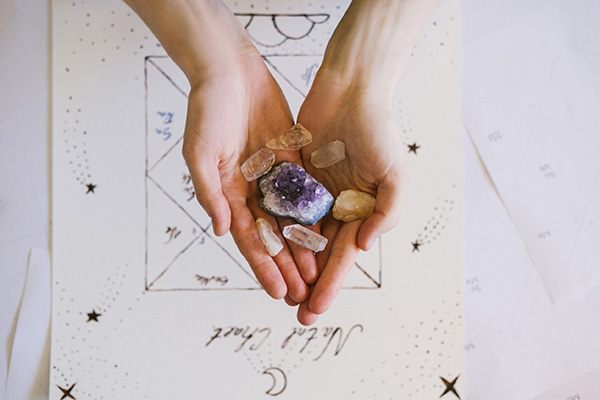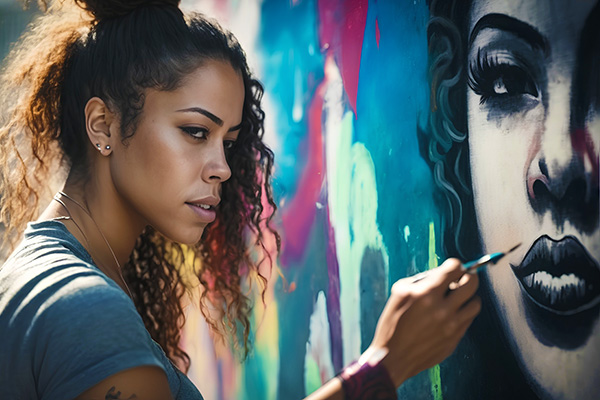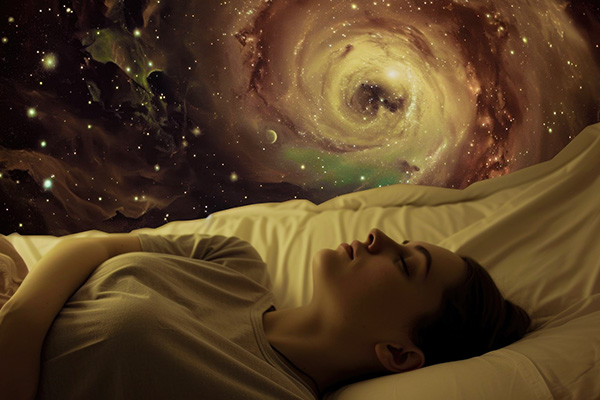self-reflection
Personal And Spiritual Growth With Crystals
 One of the most powerful ways to enhance our personal and spiritual growth is through the use of crystals. Crystals, with their captivating beauty and intricate structures, have been revered throughout history for their remarkable abilities to influence our energy field.
One of the most powerful ways to enhance our personal and spiritual growth is through the use of crystals. Crystals, with their captivating beauty and intricate structures, have been revered throughout history for their remarkable abilities to influence our energy field.
These natural mineral formations are not just ornamental but carry a deep, intrinsic connection to the earth’s energies, making them potent tools for anyone seeking to elevate their life journey.
The unique energetic and metaphysical properties of crystals can significantly support and accelerate our personal development. Each crystal vibrates at its own frequency, which resonates with various aspects of our being, helping to clear blockages, enhance positive attributes, and balance our energy.
Whether you are looking to boost your confidence, increase your motivation, or attract abundance, there is likely a crystal that can aid in these pursuits. The structured lattice within each crystal interacts with our energy fields, creating a harmonious environment that fosters growth and transformation.
In addition to personal development, crystals also play a crucial role in spiritual expansion. They enhance our connection to higher realms, deepen our meditation practices, and provide protection and clarity during spiritual exploration.
Crystals like amethyst, celestite, and clear quartz are particularly renowned for their ability to open up spiritual pathways and enhance intuitive abilities. By incorporating these powerful allies into our daily routines and spiritual practices, we can create a more balanced, harmonious, and enlightened existence, tapping into deeper levels of consciousness and inner wisdom.
Self-Charity Is Your Spiritual Responsibility
 Charity truly begins at home. To be truly charitable to others, we must first be kind and generous to ourselves.
Charity truly begins at home. To be truly charitable to others, we must first be kind and generous to ourselves.
Whether we view “charity” as giving alms to the poor, showing kindness to strangers, or extending non-judgment in times of questionable behavior, it is imperative that we first take care of our own needs. Why? Because we cannot freely and easily give to others what we have not given to ourselves.
Our true nature as incarnated spirit beings is to be loving, kind, and giving. However, it is our spiritual duty to take care of ourselves first so that we can offer more to others and make a real difference in the world.
Self-charity, or prioritizing our own needs before helping others, involves several key components.
Self-awareness is critical, requiring regular self-reflection and mindfulness to stay in tune with our mental, emotional, and physical states. Prioritizing self-care through activities such as regular exercise, healthy eating, adequate sleep, and relaxation techniques such as meditation or yoga is essential.
Mindful time management helps balance work, rest, and play, ensuring we don’t overcommit and have enough downtime to recharge.
Emotional management is essential and includes healthy ways to process and express emotions, such as journaling, talking to a trusted friend or therapist, or engaging in creative activities. Setting boundaries, learning to say no, and protecting our time, energy, and resources help us manage our lives effectively. Seeking support when needed, whether from friends, family, or professionals, ensures that we don’t carry burdens alone.
Overcoming Your Inner Saboteur
 Have you ever wondered why people sometimes try to ruin an ideal opportunity in their life, or deliberately sabotage a promising relationship?
Have you ever wondered why people sometimes try to ruin an ideal opportunity in their life, or deliberately sabotage a promising relationship?
Even though I have done thousands of readings over the years, I cannot help but still be surprised when I work with people who are in the process of sabotaging a wonderful relationship or alienating a loving, caring partner. Reading for people of all ages and walks of life around the world has shown me that this behavior is relatively common.
Not all psychic readings are about difficult relationships, difficult or cheating partners, or boring marriages. Sometimes they are about perfectly wonderful relationships that one of the partners is doing their best to destroy!
In these relationships, the saboteur consciously or unconsciously creates a toxic scenario or behaves in a dysfunctional way that will ultimately lead to a breakup. For example, the saboteur will begin to find fault with their partner, subtly push them away, or find reasons to walk away from the commitment.
Relationship readings for self-saboteurs often begin with them saying something like: “Well, things are rosy now, but they always start out that way,” or “Knowing my luck, she’ll soon get bored with me,” or “To be honest, things are so good with him, I’m just waiting for the other shoe to drop!”
It reminds me of my grandmother, who was abandoned by my grandfather when my mother and her sister were very young. She used to say, “All men are gorillas!” I later realized that my mother had adopted the same mindset.
Tarot Forecast June 2024: The Lovers
 This month the universe presents us with the The Lovers. This Major Arcana card predicts the energies of passion, choice, connection and relationships as the tone for the month ahead. The primary energies this month are harmony, balance and unity. The Lovers card represents a time of deep connection and self-discovery with yourself and others.
This month the universe presents us with the The Lovers. This Major Arcana card predicts the energies of passion, choice, connection and relationships as the tone for the month ahead. The primary energies this month are harmony, balance and unity. The Lovers card represents a time of deep connection and self-discovery with yourself and others.
The Lovers card is rich in symbolism, encompassing themes of connection, choice, and duality. It can represent romantic relationships, partnerships, or a harmonious balance between different aspects of the self.
This card usually symbolizes deep emotional bonds, love, and harmony in romantic relationships. It can signify the beginning of a new relationship, the deepening of an existing one, or the reconciliation of differences. It also represents the magnetic attraction and chemistry between lovers.
The Lovers card sometimes indicates instead an important choice or decision to be made. It emphasizes the importance of making choices that are consistent with one’s true self and values.
It can also represent moral dilemmas or ethical choices, encouraging us to follow our moral compass and make decisions based on integrity and truth. It can be a call to evaluate and realign with personal beliefs and values.
It also suggests duality and the balance between two forces, whether masculine and feminine, conscious and unconscious, or different aspects of one’s personality. It emphasizes the need for harmony and balance in relationships and within oneself. It’s about finding a balance between desires and responsibilities, emotions and intellect.
The Spiritual Importance Of Living Your Passion
 It is a sad fact that so many people in today’s modern world are dissatisfied with their lot.
It is a sad fact that so many people in today’s modern world are dissatisfied with their lot.
However, many of us allow this to happen quite easily because we have responsibilities, bills to pay, and so on. We tend to just go along with what life gives us and resist the change that would lead to a more passionate life.
In fact, sometimes we never even stop to think about what our passion might be, and sadly, we live less fulfilling lives as a result. Fortunately, this does not have to be the case.
I know that I myself have fallen into this category of people in the past, until I found where my true passion lies, which is helping other people through psychic readings and spiritual support. As a result, I have never been happier and you, dear reader, can do the same. It just depends on where your particular passion lies.
So, ask yourself, what do you really want to do with your life? Would you be more passionate about starting your own business than doing the job you have now, or are you particularly passionate about living your life in a certain way? If so, Spirit says it does not matter what other people think. What matters is what resonates with you and what makes you feel empowered and fulfilled as a human being.
Once you have determined where your passion lies (this is your focus), you need to develop a strong belief that you can fulfill this passion in your life and this mindset will be your driving force towards your goals. Many people stop at this critical point because they are understandably afraid of change. This is understandable, Spirit says, for it can be compared to stepping into the unknown.
Being Laid Off Can Spark Spiritual Growth
 Being laid off from a job can be a profoundly challenging and disorienting experience. The experience tends to stir up a myriad of feelings, worries, and questions about one’s purpose, value, security, and direction in life.
Being laid off from a job can be a profoundly challenging and disorienting experience. The experience tends to stir up a myriad of feelings, worries, and questions about one’s purpose, value, security, and direction in life.
But while job loss can be very unsettling and stressful, it also offers unexpected opportunities for personal and spiritual growth.
At its core, the spiritual journey invites us to explore the depths of our being and to seek meaning beyond the material realm. A layoff can serve as a catalyst for this exploration, prompting us to reevaluate our priorities, values, and relationship to work.
In many spiritual traditions, adversity is seen as an opportunity for growth and transformation, a chance to deepen our connection to the divine and uncover hidden aspects of ourselves.
Being fired is an invitation to surrender to the flow of life. In our modern society, we often cling to our plans and expectations, believing that we are in control of our destiny. However, a layoff can shatter this illusion of control and force us to confront the uncertainty and impermanence inherent in existence.
In the face of this new uncertainty, we have the opportunity to surrender our ego and trust in a higher power or cosmic intelligence to guide us on our path. This surrender is not an act of resignation, but rather an act of faith, a willingness to let go and allow life to unfold as it will.
